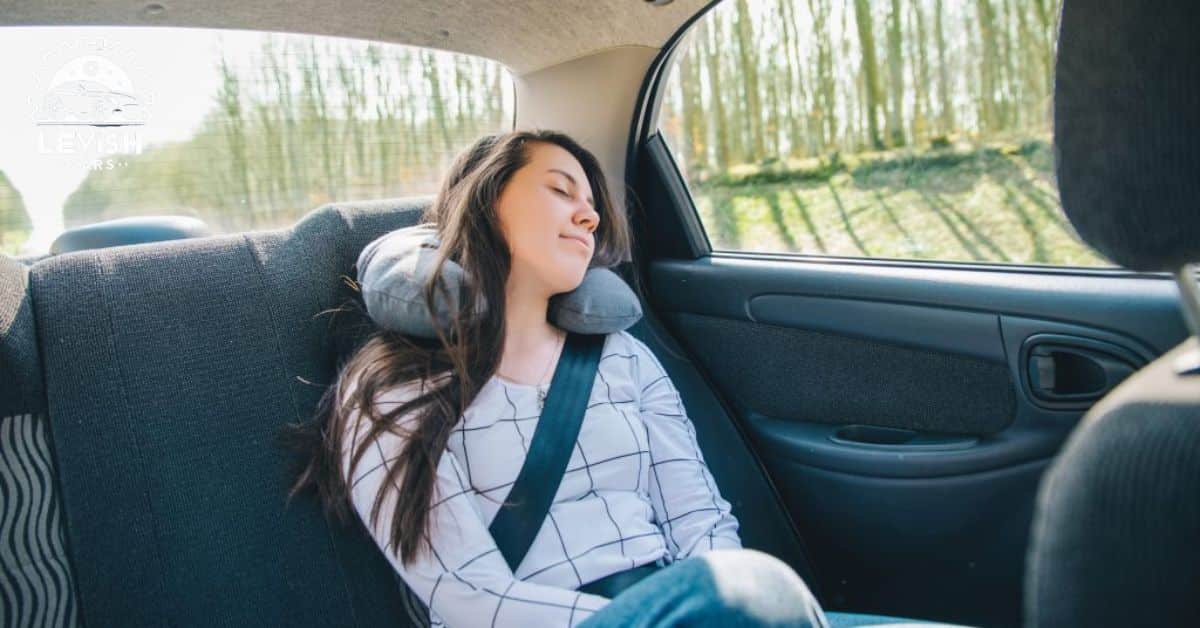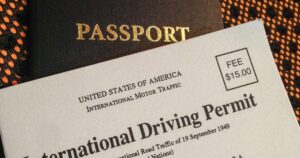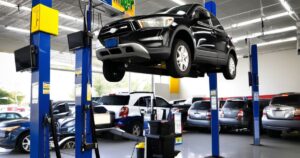In today’s world, where housing costs are skyrocketing and homelessness is a pressing issue in many communities, finding a safe and legal place to sleep can be a daunting challenge. For those living out of their cars, the search for a secure spot to park and rest becomes a daily struggle.
But there are options available that can provide some relief to those facing this predicament. Here are 10 safe and legal places you can sleep in your car for free if you’re homeless. While these options provide potential solutions for finding a safe and legal place to sleep in your car, it’s crucial to exercise caution and respect the rules and regulations of each location.
Reaching out to local homeless advocacy organizations or social service agencies can offer further assistance and guidance in navigating homelessness and accessing resources for shelter and support.
No one should have to sleep in their car, but until adequate housing solutions are available for all, these options can provide a measure of safety and stability for those experiencing homelessness.
Who sleeps in the car?

Individuals from diverse backgrounds, including those facing financial hardships, families experiencing homelessness, and veterans grappling with housing instability, may find themselves sleeping in cars.
Survivors of natural disasters, individuals with mental health challenges, and marginalized groups such as LGBTQ+ youth may also resort to sleeping in their vehicles due to a lack of stable housing options.
Understanding the varied circumstances of those who sleep in cars highlights the pressing need for comprehensive support systems to address homelessness effectively.
Individuals Facing Financial Hardship
Many individuals experiencing financial difficulties may resort to sleeping in their cars due to the inability to afford stable housing. This group includes those who have lost their jobs, faced unexpected medical expenses, or encountered other financial setbacks.
Families Experiencing Homelessness
Families with children may find themselves without a home due to various circumstances such as eviction, domestic violence, or insufficient income. Sleeping in cars becomes a last resort for these families as they strive to protect their loved ones while facing housing instability.
Veterans
Veterans, despite their service to the country, can struggle with homelessness due to factors like post-traumatic stress disorder (PTSD), difficulty transitioning to civilian life, or lack of access to adequate support services.
Sleeping in cars may be a reality for some veterans as they navigate challenges in accessing stable housing and employment.
Individuals with Mental Health Challenges
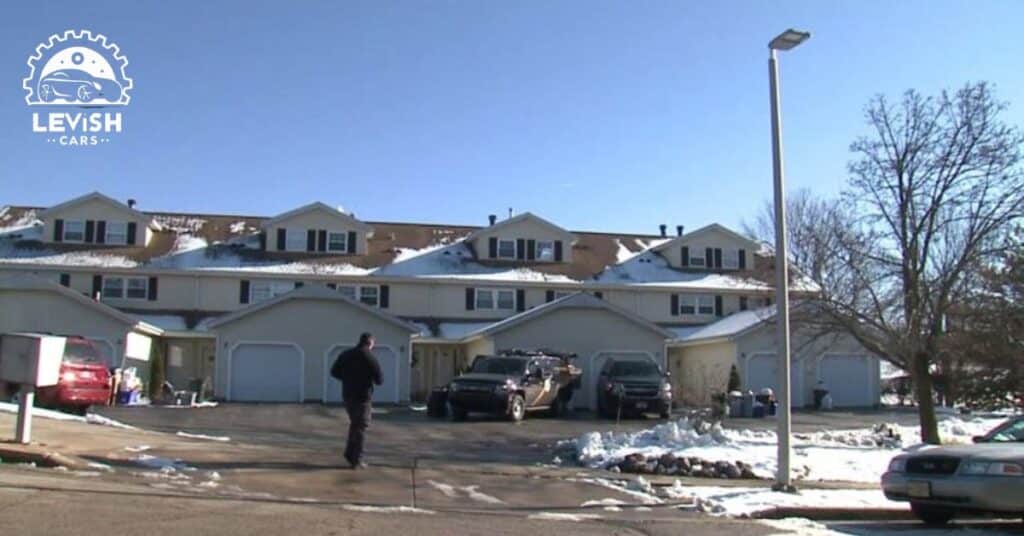
Those grappling with mental health issues may find themselves without stable housing, leading them to sleep in their cars.
Limited access to mental health services, the stigma surrounding mental illness, and difficulties maintaining employment can contribute to homelessness within this population.
Survivors of Natural Disasters
Following natural disasters such as hurricanes, floods, or wildfires, individuals and families may lose their homes and find themselves temporarily displaced. Sleeping in cars becomes a short-term solution for these survivors as they work towards rebuilding their lives and securing permanent housing.
Youth and LGBTQ+ Individuals
Young people, including LGBTQ+ individuals, may face rejection from their families or struggle with housing instability due to discrimination or lack of support networks.
Sleeping in cars becomes a means of survival for these vulnerable populations as they navigate the challenges of homelessness and seek acceptance and safety.
Where Can I Sleep In My Car If I’m Homeless?
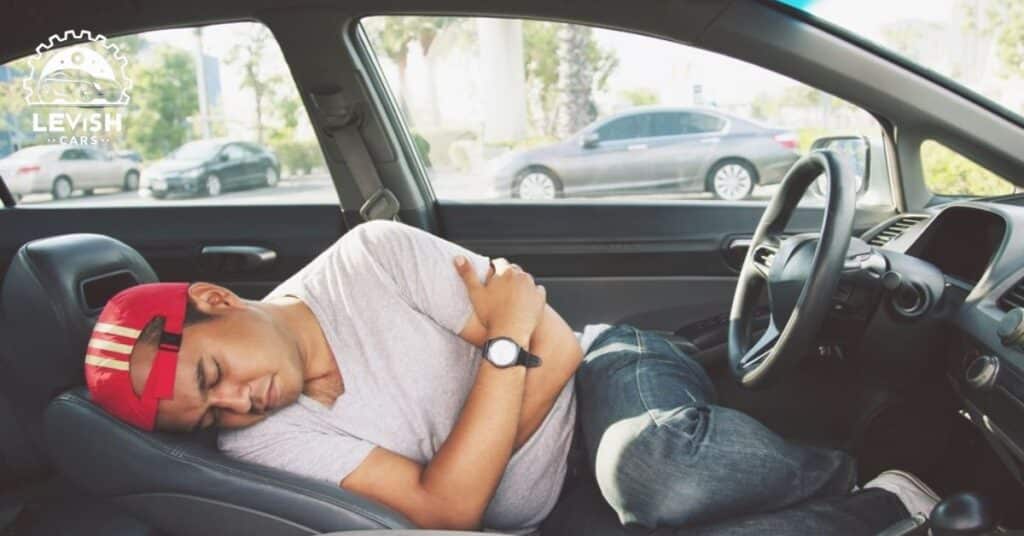
If you’re homeless and seeking a safe place to sleep in your car, options include 24-hour stores like Walmart, rest areas along highways, and designated safe parking programs offered by some cities.
Churches, hospital parking lots, and certain public parks may permit overnight parking, providing temporary shelter for those in need. It’s crucial to research local resources and regulations to ensure a secure and legal sleeping environment while experiencing homelessness.
Church Parking Lots
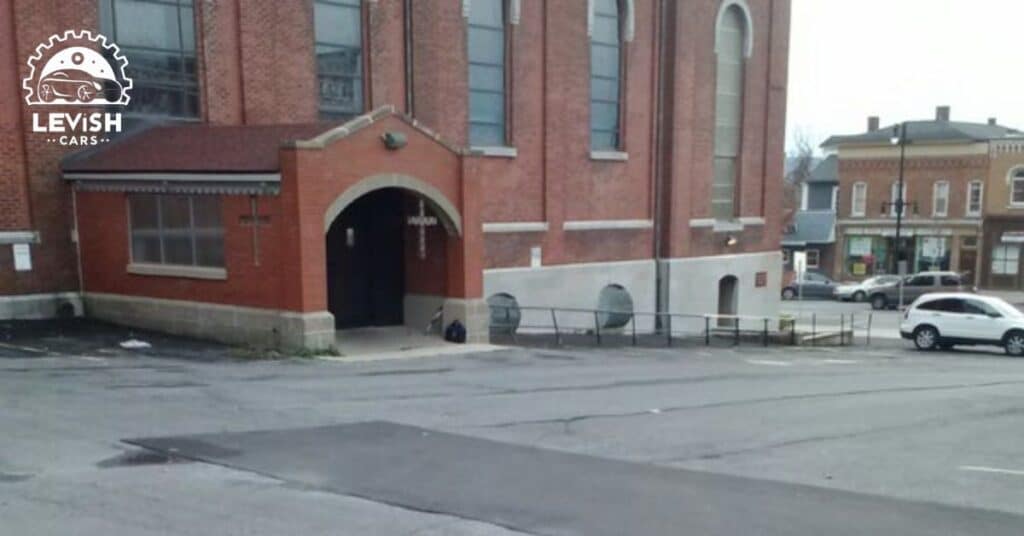
Church parking lots can be great places for van dwellers to stay overnight, as many churches allow people to park there when not in use.
Be sure to call the church first to get permission. Park away from the entrance in an inconspicuous spot and don’t leave trash behind. Be respectful of the property. Many churches are welcoming to those living in vehicles.
Home Depot Parking Lots

Home Depot parking lots are popular overnight parking spots for vanlifers. Most Home Depot stores allow RV and van parking overnight. Still, always check with the store manager first. Park away from the entrance and be discreet. Do your shopping and thank the store for allowing you to stay. Keep noise down and don’t overstay your welcome.
City-Designated Parking Zones

Some cities have designated overnight parking zones specifically for RV and van dwellers. These are often in industrial areas or on city streets. Research to see if any cities on your route have an ordinance allowing overnight parking. Fees, permits or time limits may be required. This is a safe, legal option.
Costco Parking Lots

Costco allows RVs and van campers to stay in their parking lots overnight. Keep to the back of the lot and don’t overstay. Get permission from the store manager first. Be a respectful guest by keeping your area clean. Purchase gas or supplies as thanks for the free night.
Rest Stops
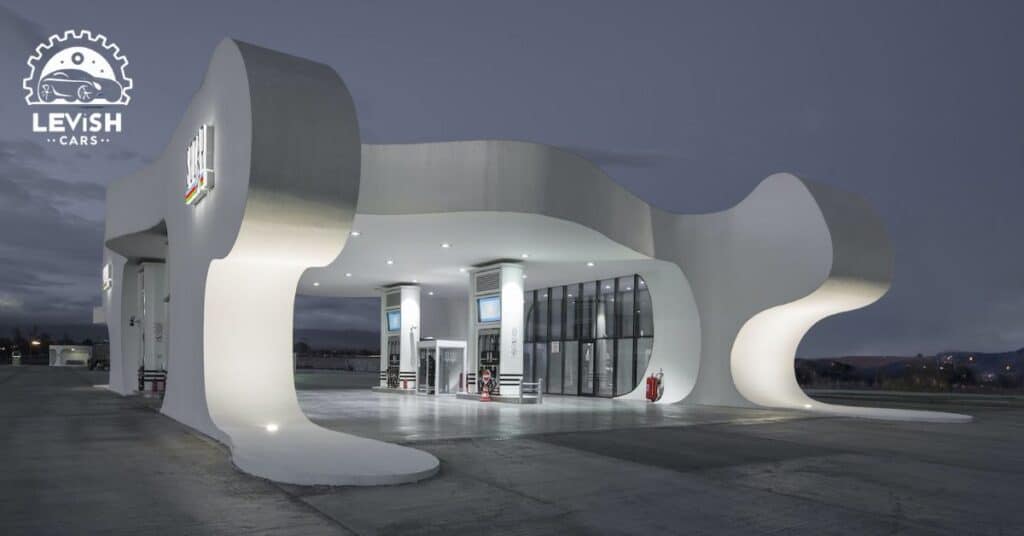
Highway rest stops with large parking lots are suitable for a quick overnight sleep. No hookups and the noise can be bothersome, but you can’t beat the convenience. Most rest stops allow a stay of up to 8 hours. They can feel exposed, so park under lights and lock doors.
Walmart Parking Lots
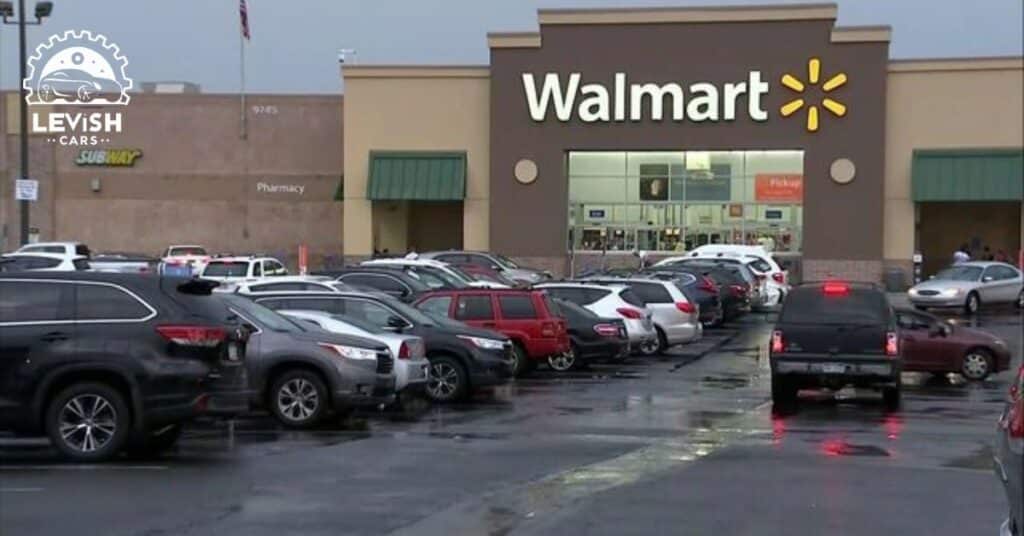
Walmart has a longstanding tradition of allowing RVs and vanlifers to spend the night. Confirm with the store manager first and park away from entrances. Patronize the store if you can. Don’t leave trash behind. Limit stays to one night. Well-lit and safe.
LOWE’S Parking Lots

Like Home Depot, LOWE’S is welcoming to van campers looking for a place to spend the night. Keep to the edges of the lot and clear of driveways. Get permission from the manager. Shop if possible and be mindful of noise and trash. LOWE’S is a go-to option for many van dwellers.
Anytime Fitness Parking Lots

Some Anytime Fitness locations allow van camping in their lot. Of course, always ask the manager first. Park away from prime spots and be mindful of other patrons. Keep noise down and don’t leave a mess. Joining the gym can be a nice way to say thanks!
Dispersed And Traditional Campsites
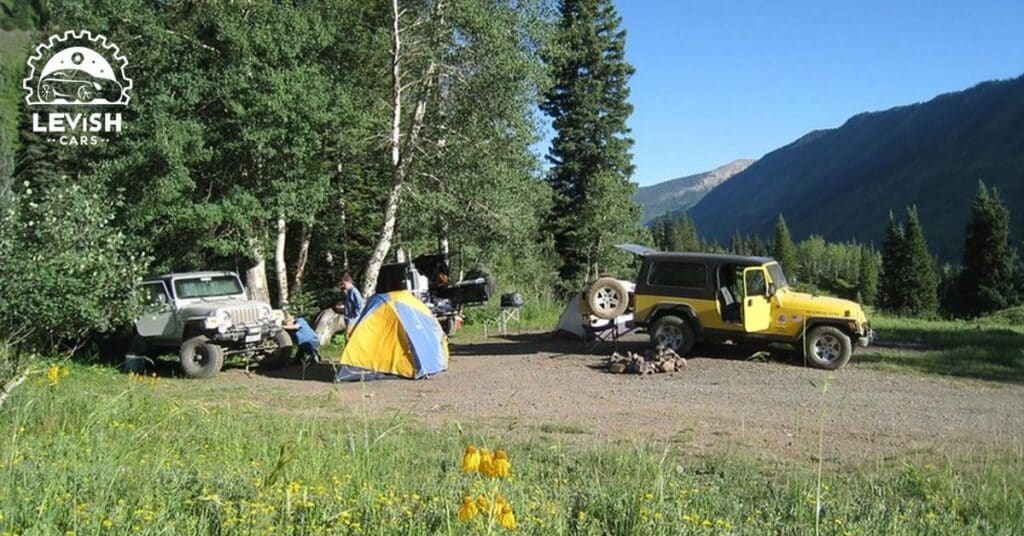
National forests and BLM land allow free camping on undeveloped sites with few to no amenities. Research dispersed camping regulations online or check with the local ranger district. Drive on established roads and tread lightly. Practice Leave No Trace ethics.
Sam’s Club Parking Lots

Similar to Walmart and Costco, Sam’s Club often permits van overnighters to use their parking lots. Check with the manager on duty and park away from the entrance. Try to keep a low profile and noise down. Limit stays to one night. Shop if possible. Sam’s Club makes for a convenient stop.
FAQs
Are these places free to park overnight?
Yes, these places typically offer free parking for homeless individuals.
Are there any restrictions or rules I need to follow?
Each place may have its own rules; it’s best to ask beforehand.
Are these places safe for sleeping in my car?
While generally safe, it’s essential to be cautious and aware of your surroundings.
Can I receive additional support or assistance at these locations?
Some places offer extra help like food assistance or counseling.
Who can I contact for more information or assistance?
Local shelters, advocacy groups, or social services can provide guidance.
Final Thoughts
In challenging times, knowing safe and legal places to sleep in your car can provide much-needed relief for those facing homelessness. While each location may have its own rules and amenities, the overarching aim is to offer a secure haven for individuals in need. From 24-hour stores to designated safe zones, these options demonstrate a community’s willingness to extend a helping hand to those in crisis.
But, it’s crucial to approach these opportunities with caution and respect, adhering to any guidelines set forth by the authorities or management. Seeking additional support from local shelters and social services can supplement these temporary solutions, providing a pathway to long-term stability.

Hey there! I have 5 years of experienced repairing all makes and models. Specializes in engine diagnostics, brake repair, electrical systems, and teaching DIY maintenance tips. Passionate about keeping cars running safely.
